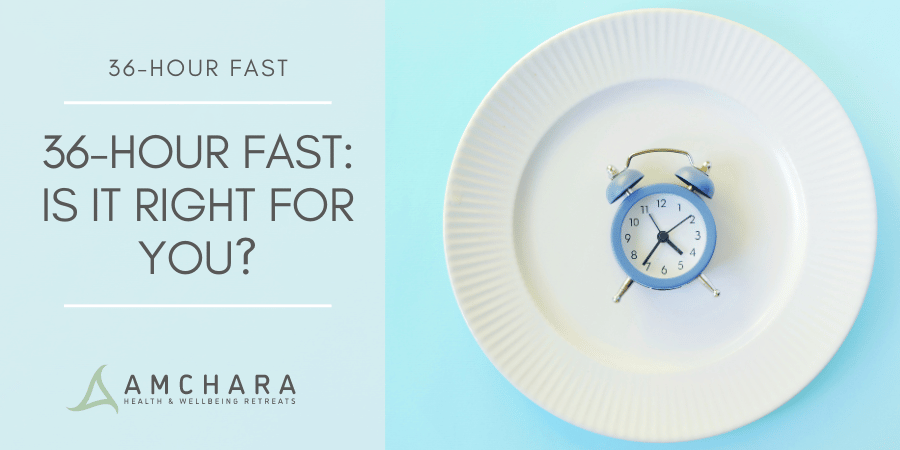Topics Covered in this article:
If you’re planning to embark on a period of fasting, you may find some aspects challenging, especially if you are new to fasting.
Fasting is reported to have a vast array of positive health benefits, such as lowering inflammation, preventing disease and assisting with weight loss, amongst many others. The side effects may be temporarily unpleasant but it is important to emphasise they are only short-lived.
You may have no idea how what to expect during fasting, and you may experience some minor, temporary downsides.
If you’re prepared for these potential (and temporary) downsides, don’t forget the immense health benefits of fasting.
Our mission is to provide you with both insightful information and evidence-based content to provide you with actionable knowledge and tips you can trust, to help you on your journey to optimal health.
So let’s take a look at six potential side effects of fasting.
1. Headaches
Headaches are a common complaint from those venturing into fasting for the first time. They can be triggered for all sorts of reasons but typically include:
- Low blood sugar (hypoglycaemia)
Going without food can mean your blood glucose levels temporarily drop too low and this may trigger quite severe headaches or migraine. (1)
- Stress hormones
During a fast your body releases stress hormones that are important for balancing energy levels and they can also be responsible for triggering headaches.
- Tea and coffee abstinence
Some people experience quite severe symptoms of caffeine withdrawal in the first few days of giving up coffee or tea and usually this includes headaches. You might also feel nauseous, achy and tired.
Reducing your intake of caffeine in the week or so prior to a fast can help reduce the chance of a caffeine related headache.
Try herbal teas of coffee substitutes like chicory root ‘coffee’ or dandelion ‘coffee’.
- Release of toxins
Fat cells store toxins and during a fast these toxins may be released; the level of release will depend on how many toxins are stored.
Toxins can come from the environment, chemicals in cosmetics and toiletries, pesticides and fertilisers used in the food chain, medications and contaminated water.
The effects of releasing these toxins can include not only headaches but also brain fog, nausea and aches and pains.
Although some of these effects may feel unpleasant, the release of toxins is beneficial and over time it helps the body to function correctly, reduces damage to cells, improves energy and mental clarity and can reduce chronic symptoms.
These ‘fasting headaches’ may be caused by a combination of different factors and it is important to reiterate that they are normally temporary.
It is important to maintain adequate hydration (at least 8 to 12 glasses of water or unsweetened herbal tea) whilst fasting to help avoid headaches.
2. Difficulty sleeping
Feeling hungry or having a headache may be obvious reasons why fasting may keep you awake, but what might also be happening can be related to hormonal activity.
In response to no food intake your body releases stress hormones like cortisol and adrenalin. The release of adrenalin during fasting is is an emergency mechanism designed to feed the brain.
Adrenalin helps to convert glycogen stored in your liver into glucose molecules – the brain’s favourite fuel. Abnormal adrenalin secretion during the night can cause insomnia. (2)
Helpful strategies to cope with this temporary insomnia include making sure you have a good sleep routine that includes some form of relaxation such as reading or having a hot bath. Adding magnesium salts to your bath can aid sleep.
Other good strategies include only going to sleep when you’re tired and getting out of bed if you are really struggling to fall asleep.
Find something calming to do until you feel tired enough to go back to bed.
3. Emotions
Irritability may occur during fasting periods.
Your brain and body are seeking fuel and enlisting hormones and neurotransmitters to make you eat.
Resisting the urge can be overwhelmingly difficult and not surprisingly can lead to mood swings.
Hunger that triggers anger is often referred to light heartedly as ‘hanger’.
Remember that hanger pangs can be caused by an emotional need for food – the more you fast, the more you will learn to tune into your body’s needs and realise that these cravings are related to your mindset and may be alleviated by a simple change of scene or a glass of water.
You may also experience a resurfacing of old emotions and feelings that perhaps haven’t been dealt with. Some call this an emotional detox.
This can be a difficult phase as emotions may be running high. As the body moves to stabilise its energy sources these emotions may reduce.
Meditation, mindfulness, yoga and visualisation may help to give emotional support and balance.
4. Bad breath
When you’re not eating you produce more bacteria and less saliva which can result in halitosis (bad breath). (3)
The act of chewing increases saliva and bad breath disappears, so once the fast has ended your breath should return to normal.
Drinking more water can help alleviate this temporary bad breath as can brushing your teeth more frequently.
Using a tongue scraper once or twice a day can also help to clear any bacteria or debris that may have accumulated.
5. Constipation
As you are consuming no food, you shouldn’t be too alarmed if you’re not visiting the toilet very often during a fast.
If however the constipation is making you anxious, you can remedy this by adding Epsom salts to your drinking water.
Epsom salts contains magnesium sulphate, which, according to research, has a potent laxative effect and will help to get your bowels moving pretty quickly. (4)
Again, maintaining adequate hydration levels is helpful to reduce constipation and keep everything moving and you may actually find you need to drink more than the recommended 2 litres a day.
Apart from more frequent trips to the toilet, this is a good thing as it helps to flush out any waste.
Keeping yourself relatively active will also help by stimulating the bowel to eliminate.
6. Lack of energy
Annother temporary impact from fasting can be a lack of energy.
Food provides the body with carbohydrates, protein and fat – all of which play a role in energy production.
When you fast and stop the intake of these nutrients the body has to switch to obtaining energy from stored fats.
This can lead to a temporary drop in energy levels which can leave you feeling a little sluggish or lethargic.
However, this is only short-lived.
Many people report that once their body adjusts to fasting and they start to feel good, their energy levels return and are often much improved.
Typically the health benefits more than outweigh these negative (and remember only short-term) aspects.
Gaining support and guidance from an experienced health professional can be a helpful way to venture into fasting for the first time.
Fasting can seem daunting, however don’t let potential side effects put you off.
If you prepare ahead of the fast, ensure you have nourishing activities planned to keep your mind active and take it slowly, you will find that the fasting experience will bring many physical and emotional benefits.
We believe that sharing knowledge and experience is an important part of achieving optimal health and would love to hear your views and experiences.
Have you tried fasting? How has it benefited your health?
We’d love to hear from you.
Jacqueline Newson BSc (Hons) Nutritional Therapy
Read this next:




